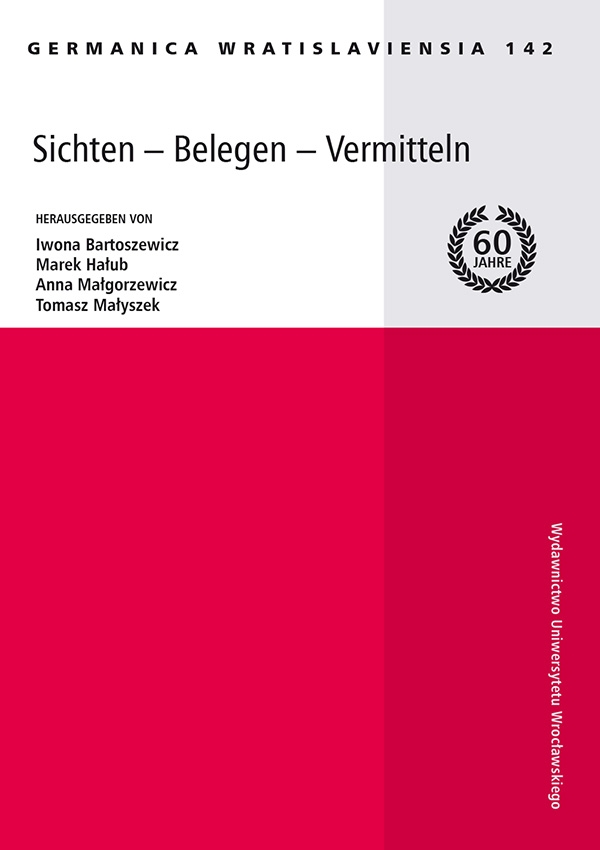

Literary studies

Die sogenannte Heimatliteratur wird in der Regel durch kitschige Sentimentalität gekennzeichnet. In der nostalgischen narrativen Weltwahrnehmung der Heimat wird das Motiv der verlorenen Heimat zum Symbolgerüst der Melancholie und Heraufbeschwörung der vergangenen Zeiten. Man könnte deshalb annehmen, dass auch im Werk von Paul Keller – dem schlesischen Heimatschriftsteller schlechthin – das Heimatbild ähnliche Formen annehmen würde. In Kellers Der Sohn der Hagar wird allerdings der Heimat-Topos nicht auf die Parameter der regionalen Heimatliebe eingeschränkt, sondern durch die Dimensionen des christlichen Glaubens und des Selbstsicherheits-Faktors ersetzt. Der schlesische Heimatroman Kellers ist somit weniger als ein Text über die Heimat Schlesien zu begreifen, stattdessen als ein Roman über die Suche nach der Heimat und der eigenen Identität.
On the Heimat-Topos in Paul Keller’s Silesian Novel Der Sohn der Hagar
The so-called Heimatliteratur which, as it is considered by its critics, is part of the trivial literature, is characterised by a kind of kitschy sentimentality. In the nostalgic, narrative world perception of the Heimat the motive of the lost homeland prevails, which becomes the symbol of the melancholy and the reminiscence of the past history. For this reason, one can assume that in Paul Keller’s prose – the most popular Silesian writer of this trend– the homeland image takes similar forms too. However, in the novel Der Sohn der Hagar the homeland topos does not restrict itself to the parameter of the regional love of the homeland, but, what might surprise, is transformed by the Christian faith and the safety factor. Owing to that fact, Keller’s Silesian ‚Heimatroman‘ should not be considered as a novel about Silesian small homeland, but as a novel about the search for one’s own homeland and own identity.